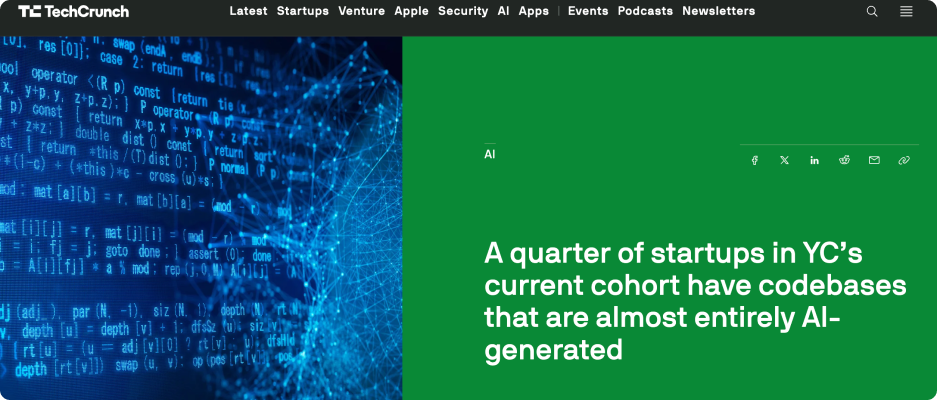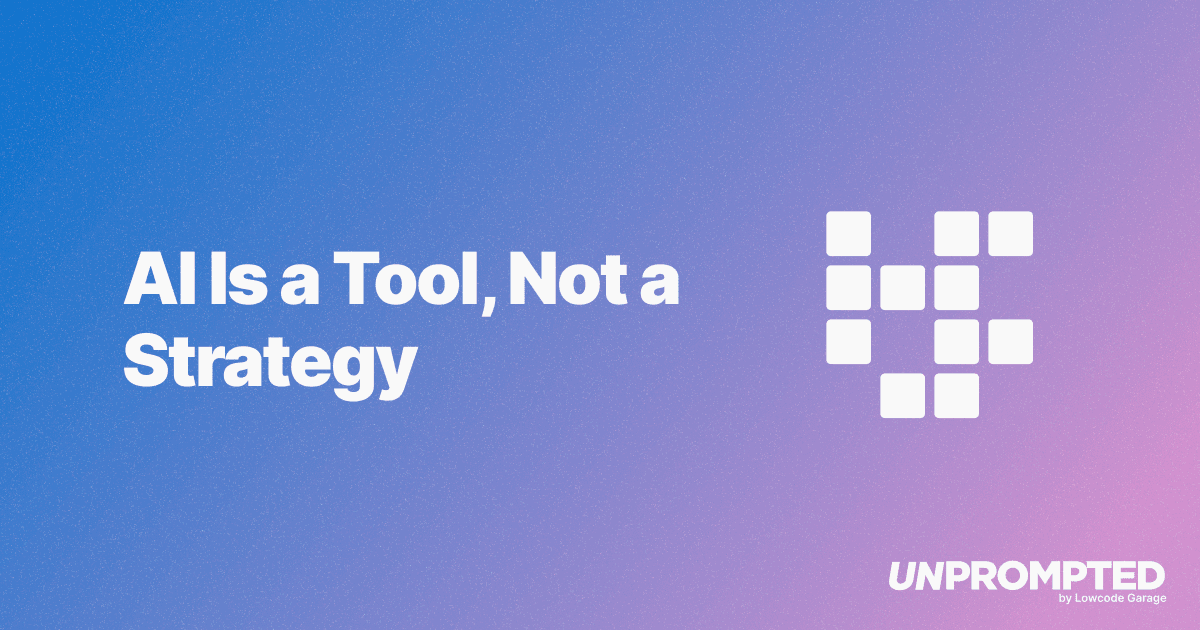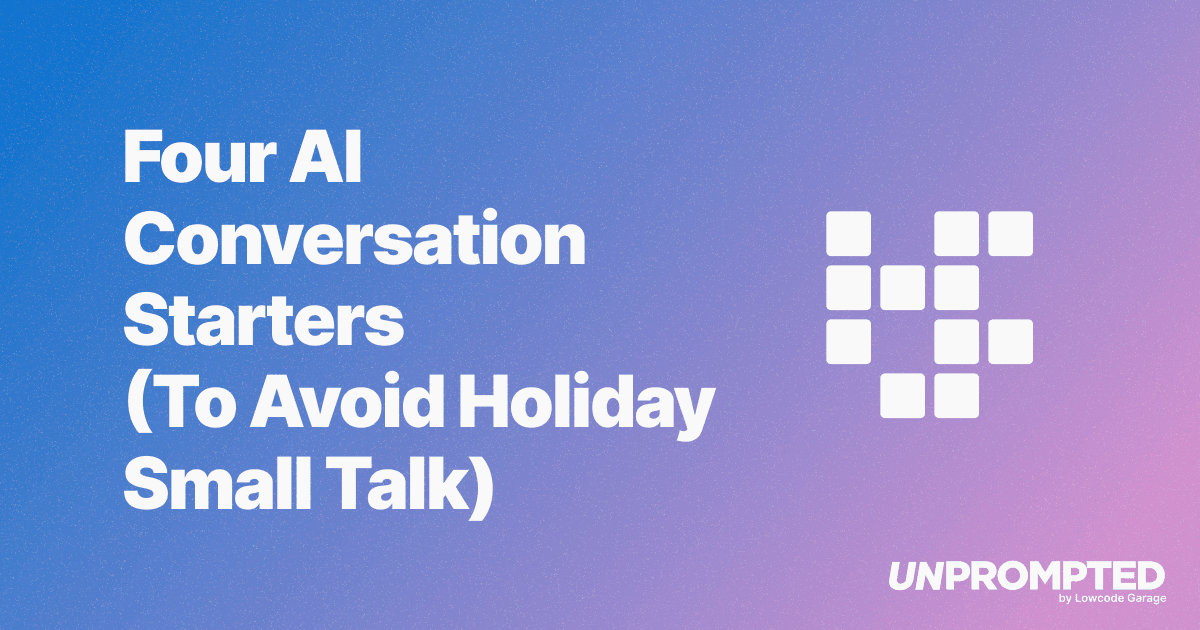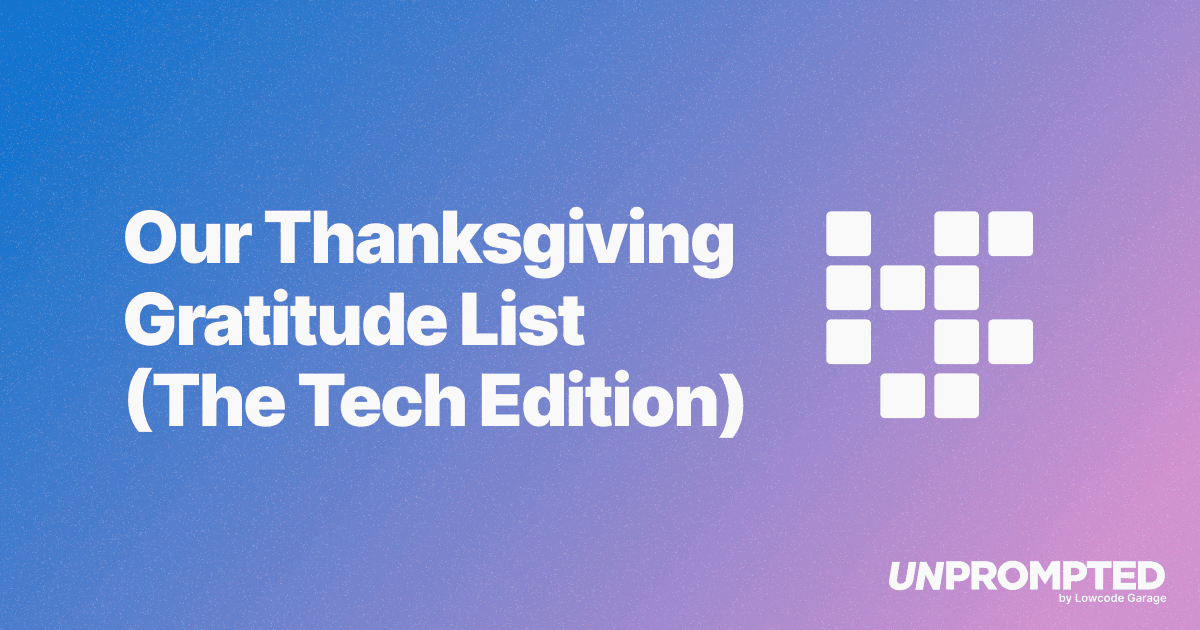The Golden Era of AI Tech is Here
Why solo founders can now build what used to require entire teams
For decades, building a startup meant burning time and cash just to get from idea to working prototype. Validating a concept often meant hiring engineers, building a team, raising capital, and months (or years) of trial and error.
But AI is flipping that model on its head.
Today, solo founders or small teams can move from zero to one — from nothing to a real, testable product — in days, not months. And they can do it without spending hundreds of thousands of dollars or raising millions from VCs.
AI as the New Co-Founder
AI tools like Cursor, Bolt, and Lovable are making it possible to:
- Prototype products using AI-generated code, UI design, content, and branding
- Test business models with AI-generated landing pages, copy, and automated outreach
- Automate tasks that once required hiring early employees — from customer support to sales emails and pitch decks
And we're not talking about what these tools could do in the future – this is happening now, and it's becoming the default for some of the most ambitious startups today.
Y Combinator (YC), the startup accelerator behind companies like Airbnb and Stripe, is known for spotting what's next. In its Winter 2025 batch, a quarter of startups have codebases that are almost entirely AI-generated. These are technical founders choosing AI as the primary builder—not a crutch.

No More "What Ifs"
We've talked to countless clients who have had great ideas sitting in the back of their minds for years — passion projects, side hustles, dream apps. The only thing holding them back was time, money, or technical skill.
Those are all gone now.
You no longer need a 5-person engineering team or a $500k seed round to start. You need clarity of vision, access to AI tools, and the willingness to start building.
That's why at Lowcode Garage, we're helping people take their "someday projects" and turn them into something real in days or weeks — not years.
What This Means for VCs
Traditional venture capital has been built around funding risk reduction — paying for teams, MVPs, and user validation. But if a single founder can validate, build, and ship version 1.0 with AI in a month, what exactly is that first $500k check buying now?
This shift could lead to:
- Smaller initial investments but faster follow-ups for proven traction
- More solo founders or AI-augmented micro-teams
- Greater emphasis on distribution and defensibility (since building has become easier, standing out becomes harder)
There's a wave of lean startups emerging, proving that smart execution with minimal capital can outperform the old model of high burn and big funding.
Going from Zero to One in 2025
Peter Thiel argued that "Zero to One" is about doing something new — not iterating, but inventing. AI is now helping more people than ever do just that.
We're entering an era where a great idea, tested and prototyped with AI, can attract attention, users, and even revenue — before needing VC money.
This is the most accessible moment in history to launch a product, test a business, or bring a vision to life.
So if you were ever looking for the perfect time to build that side project or idea you've been telling your friends about…
That time is now.
Frequently Asked Questions
Continue Reading

AI Is a Tool, Not a Strategy
Henry Kravis reminds us that AI is a productivity tool, not a strategy. Strong management, cultural fit, and operational fundamentals still determine whether businesses succeed or fail.

Four AI Conversation Starters (To Avoid Holiday Small Talk)
Four timely AI conversation starters covering federal vs state AI regulation, Opus 4.5 capabilities, physical AI in construction, and Michael Burry's bet against Nvidia—perfect for surviving holiday small talk.

Our Thanksgiving Gratitude List (The Tech Edition)
Discover the AI tools transforming how we build products at Lowcode Garage. From publishing content with Claude Desktop to building prototypes in weeks instead of quarters, here's our Thanksgiving gratitude list for the tech that makes it all possible.